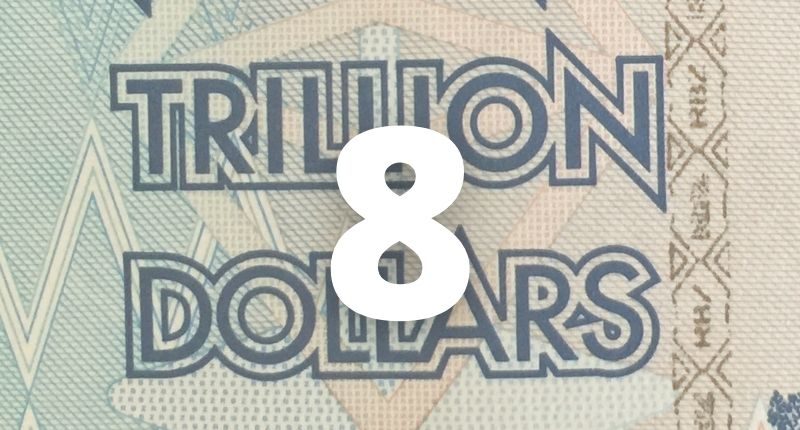- Total value of residential property is now four times Australia's GDP
- Has increased by $1 trillion since the pandemic hit a year ago
- March quarter saw the largest increase in house values since the 1980s
CoreLogic has announced today that the total value of residential real estate across Australia has passed through the $8.1 trillion mark.
$8,100,000,000,000 to be precise.
To put this into perspective, Australia’s Gross Domestic Product (GDP) – essentially, the total value of all final goods and services produced in Australia within a year – during the 2019-20 financial year was about $1.95 trillion, according to the Australian Bureau of Statistics (ABS).
… Or, you would need about 7 Apple’s or Amazon’s to purchase every residential property in the country. Or Jeff Bezos, the world’s richest person, would need to increase his worth 33-plus times over.
The news comes as only two months ago, by the Reserve Bank of Australia’s reckoning, the total value was just over $7.6 trillion.
CoreLogic’s Head of Research, Eliza Owen, said the surge follows broad-based gains witnessed across the country.
“The Australian dwelling market has reached fresh record highs for the past four months, but the end of April marked the first time the total value of Australian housing broke the $8 trillion dollar mark,” said Ms Owen.
“This puts Australian residential property at around four times the size of Australian GDP, and around $1 trillion more than the combined value of the ASX, superannuation and commercial real estate stock combined.”
Eliza Owen, CoreLogic Head of Research
According to CoreLogic, residential properties have about doubled in value since April 2011.

In the three months to April, home values nationally rose by 8.8% – the highest quarterly growth since December 1988 – with March alone recording a 2.8% increase.
Ms Owen said this increase puts Australian homeowners in a strong equity position. According to the RBA, just 1.3% of housing loans were in a negative equity position at the beginning of 2021. However, she warns there are negative aspects to this growth.
“For many Australians looking to get a foot on the property ladder, the continued strength in the market is putting home ownership further out of reach despite record-low mortgage rates. Wages growth simply isn’t keeping pace.”








